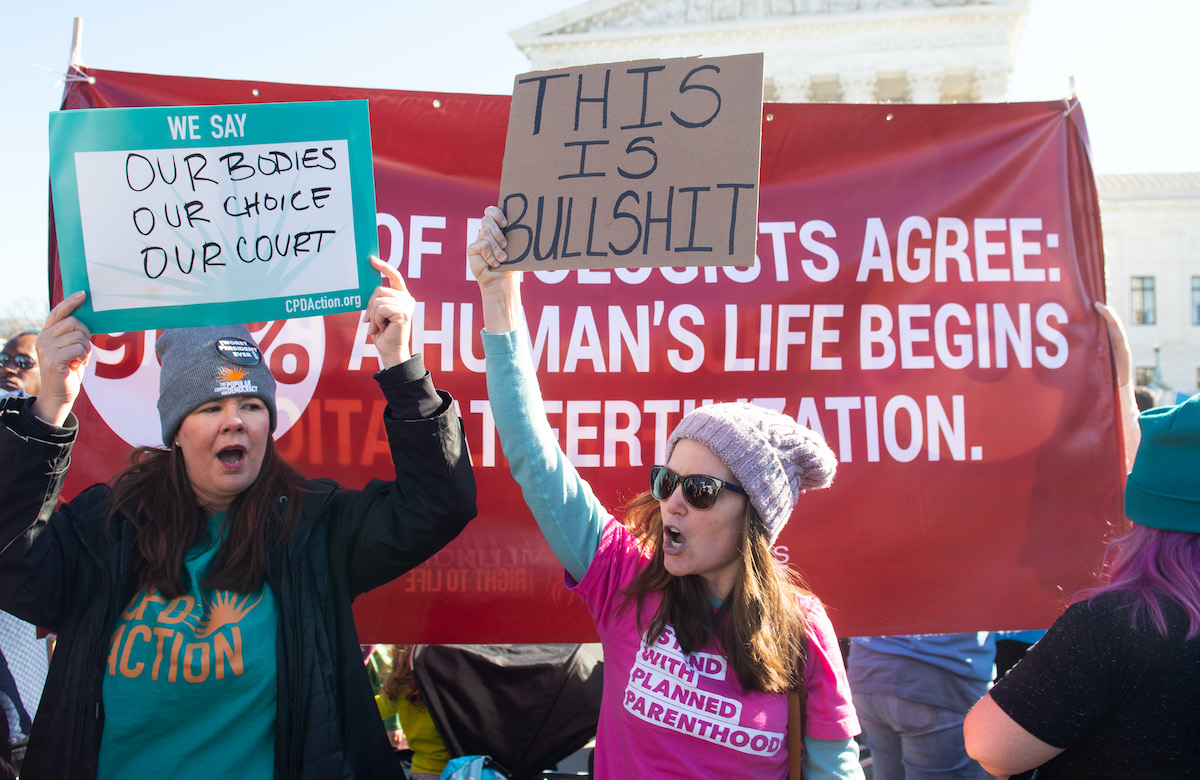Texas Governor Greg Abbott signed legislation Wednesday enacting an abortion ban in the state starting at six weeks of pregnancy. That is before most people even know they’re pregnant, making it a de facto ban on abortion outright—a workaround to that pesky constitutionally protected right that anti-abortion advocates hate so much.
Usually, when a ban like this gets signed into law by an anti-abortion governor, it immediately gets challenged in court. And since Roe v. Wade says a person can choose to have an abortion before the point of viability (when the fetus can survive outside of the uterus), which is around 24 to 28 weeks, the courts are then forced to block the ban. But Texas’ ban is going to make challenging it much more difficult.
For some context, the law is yet another attempt to ban abortion based on the false idea of a “fetal heartbeat,” a thing that doesn’t exist. At about six weeks gestation, there can be no heartbeat because there is no heart in an embryo about the size of a pomegranate seed. Instead, what you have is embryonic cardiac activity, or electrical activity in the fetal pole that runs along the yolk sac. But conservatives have decided to call this a “heartbeat”—which, again, it is not—and they’ve been woefully successful in getting that language and the imagery it evokes to stick. It works because it manipulates people’s emotions and gets them to put those feelings over the actual science.
What Texas’ ban does is give those people an immense amount of legal power.
Rather than leave it up to the government to enforce this law, private citizens have the right to file civil lawsuits against anyone who performs an abortion or who “knowingly engages in conduct that aids or abets the performance or inducement of an abortion.”
“In other words,” MSBC explains, “if a Texan learns that a neighbor had an abortion seven weeks after getting pregnant, he could file suit against the physician who performed the procedure. And the nurse who was in the room. And the friend who drove the neighbor to the health clinic.”
That person could also presumably sue an insurance provider if they reimbursed or covered any costs, or a clinic escort who walked a person into the facility, or any number of other people involved in the process of getting an abortion. And that person who files the suit does not need to know anyone involved, in any capacity. They can be a total stranger.
In addition to being completely bizarre and terrifying, this makes it much harder for organizations like the ACLU or the Center for Reproductive Rights or any of the other groups who often file legal challenges in cases like these to do so. It also sets the stage for anti-abortion “activists” to bury abortion providers in as many lawsuits as is humanly possible.
By the way, Abbott signed this bill into law right just one day after signing an executive order banning government entities from implementing a mask mandate—including public health facilities where large numbers of immunocompromised people might need to be and also public schools, despite the fact that many children aren’t even eligible for the vaccine yet.
Abbott argued that “Texans, not government, should decide their best health practices.”
In recognition of their right to bodily autonomy, Texas will not require the women it is forcing to give birth to wear a mask.
— Julia Carrie Wong (@juliacarriew) May 19, 2021
(image: SAUL LOEB/AFP via Getty Images)
Want more stories like this? Become a subscriber and support the site!
—The Mary Sue has a strict comment policy that forbids, but is not limited to, personal insults toward anyone, hate speech, and trolling.—










Published: May 20, 2021 04:54 pm